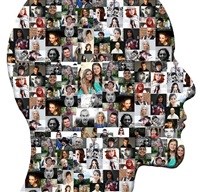In 1999, Joseph Pine and James Gilmore first introduced the concept of an Experience Economy. The premise of the experience economy is that goods and services are no longer enough for consumers - that brands must create memorable events and experiences that capture their audience and create experiences that transform their brand's value proposition. Think Red Bull.
The experience economy is not a fad or trend, it is socio-economic behaviour that is today driven by millennials willing to pay a premium for experiences over owning things such as cars and homes.
A brief history of the economy
To appreciate the importance of this Experience Economy and the fact that it's not just a trend, one just needs to take a quick look at how the world's economy has evolved over past centuries and continues to evolve due to technological progress.
The first and oldest type of economy is the agrarian economy, where economic activities were focused on the growth, extraction and raising of produce from the ground. In the 1800s, 90% of employment was in the agrarian economy. 100 years ago, around 1915, progress in technology has moved the masses from farms to factories ushering in the industrial economy, where product features, cost and quality reign supreme as differentiation attributes, 40% employment is in manufacturing. Only 60 years ago, a decade in which the McDonald's franchise is founded, it is a time where suits and ties filled up offices, hotels and coffee shops. This is the era of the service economy that today accounts for 80% of the world's workforce.
Millenials, technology and the Experience Economy
So where are we today? Over 2.92 billion people are online. Hotels now compete with homeowners as travellers look to sites like Airbnb for accommodation in pursuit of hyper-local experiences. It's a time where somewhere in the Netherlands you can get your coffee delivered to you by a drone. Why? Not because it makes your coffee taste better or because it is delivered faster (on the contrary it probably arrives slightly colder, takes longer and is more expensive), but because it's a cool, novel experience and we now have the technology to do it. Welcome to the experience economy.
Where 78% of millennials chose experiences over owning things. Eight in ten millennials say some of their best memories are from experiences or events.
Consumers know what they want and are willing to pay a premium for it
We are in the era where experiences shape identity. Millennials crave the chance to tell others "I was there"! So, they organise online, gather offline and share their offline experiences via social media to drive social capital. Experiences are now as important as services and products, where goods are used as props and services as a stage to engage customers in a very personal way and thereby create memories which shape identities.
In a Forbes article Alex Frias states that, "Consumers know what they want and are willing to pay a premium for it. In turn, we as marketers have to take their cues to adopt and leverage technology to create immersive, total-experience strategies to give them an elevated product across all touch points."
To create total-experience campaigns, marketers need to strategically conceptualise campaigns that incorporate traditional media, digital, physical spaces and technology. Marketers also need to familiarise themselves with the creative possibilities ushered by available technologies such as virtual reality, 3D printing and iBeacon technology, some of the tools available for interactive and immersive experience design.
The new brand experience is about staging experiences that create memories, which shape identities that influence choices.




































